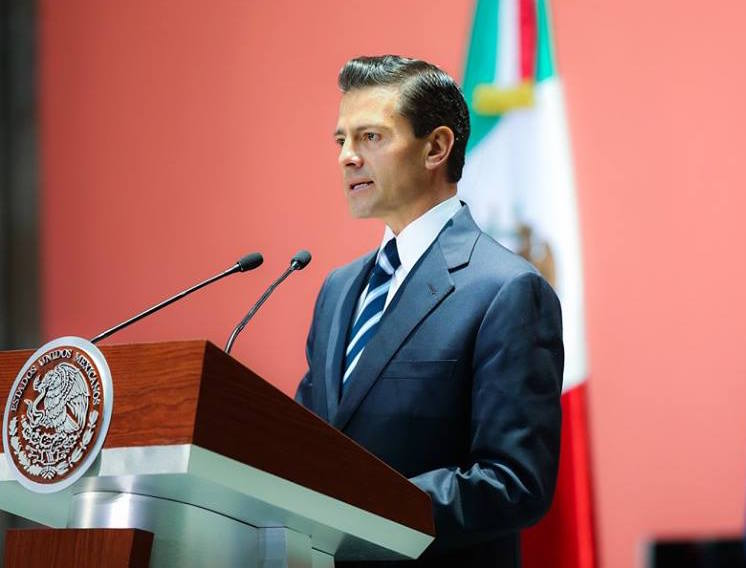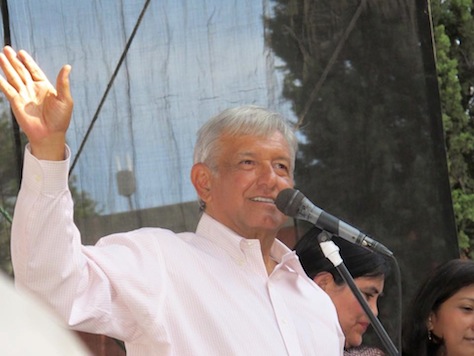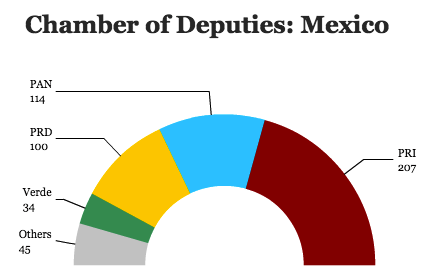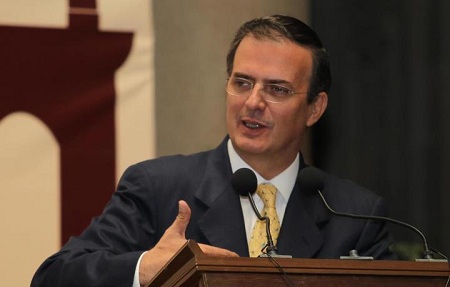
Mexico’s president, Enrique Peña Nieto, was elected in July 2012 to great fanfare, so it was almost certain that his administration would fall well short of expectations.![]()
In the leadup to that 2012 presidential election, Peña Nieto spent so many years as such a heavy frontrunner he was practically Mexico’s president-in-waiting. When he ultimately won the presidency by a margin of around 6.5%, it was less than polls predicted, but still the largest margin of victory in a presidential election since 1994. With movie star looks and a bona-fide star for a wife in Angélica Rivera, a model and telenovela actress, his victory was a triumph not only for himself, but for his party, the Partido Revolucionario Institucional (PRI, Institutional Revolutionary Party), which lost the presidency in 2000 after seven decades of consecutive rule in Mexico and that spent a difficult decade shut out of executive power at the national level. In Peña Nieto, the telegenic former governor of the state of Mexico, with over 15 million people, by far the largest in the country and the surrounding state of Mexico’s central federal district.
* * * * *
RELATED: For El Paso-Juárez,
Trump’s vision of Mexico based on misconception
* * * * *
When he rose to the presidency, Peña Nieto was widely expected to do just two things as the face of what Mexican voters believed to be a reformed and a modernizing PRI.
First, Peña Nieto would enact a range of reforms liberalizing everything from Mexico’s energy sector to its tax collections scheme. Second, Peña Nieto would bring peace to a country roiled by drug violence, lethal competition among drug cartel and what seemed like an increasingly self-defeating militarized response to drug violence by Peña Nieto’s predecessor, Felipe Calderón, of the conservative Partido Acción Nacional (PAN, National Action Party).
On both fronts, Peña Nieto fell short of expectations.
While Mexico might today be more becalmed than in 2012, violence and government incompetence have dominated headlines. Peña Nieto’s presidency will forever be marred by the abduction and assassination of 43 students in Iguala by police officers in Guerrero state in September 2014. The glory of his government’s capture in 2014 of Joaquín ‘El Chapo’ Guzmán, the leader of the infamous Sinaloa cartel, was soon eclipsed by his escape from a maximum-security prison in 2015, and Guzmán, recaptured seven months later, now faces extradition to the United States.
Peña Nieto’s presidency has been a mix of the good (significant political and economic reforms), the bad (corruption, impunity at the highest level of the PRI and his own administration and ineptitude in the face of cartel strength) and the ugly (the Iguala massacre).
By most measures, though, his performance has been far worse than many observers expected, with less impressive reforms than promised and a legacy of sporadic drug violence, police brutalization, personal conflict-of-interest scandals and continuing widespread corruption at all levels of government. That’s all on top of a Mexican economy struggling to deal with far lower global prices for oil and other commodities. It’s so bad that his approval rating sank earlier this month to just 23%, lower than any Mexican president since Ernesto Zedillo faced an acute peso crisis in the mid-1990s.
In the July 2015 midterm elections, the PRI lost nine seats in the Cámara de Diputados (Chamber of Deputies), the lower house of the Mexican congress, and in the June 2016 gubernatorial elections, the PRI lost power in states it’s held since 1929 — including Veracruz, Tamaulipas Durango and Quintana Roo.
Just this week, as he prepares to deliver his state of the union address on Thursday, Peña Nieto has faced down embarrassing revelations that he plagiarized much of the thesis that he submitted for his law degree. Earlier this month, his wife faced fresh accusations of a new conflicts-of-interest scandal involving the use of a luxury apartment from a Mexican businessman in Miami.
So as the Mexican president prepares to welcome Republican presidential nominee Donald Trump for an unexpected private meeting on Wednesday, it’s no understatement that Mexico’s beleaguered president could use a diversion. With his approval ratings so low, though, Trump presents an easy target. Continue reading Peña Nieto needs a Trump-sized confrontation to help his ailing presidency


